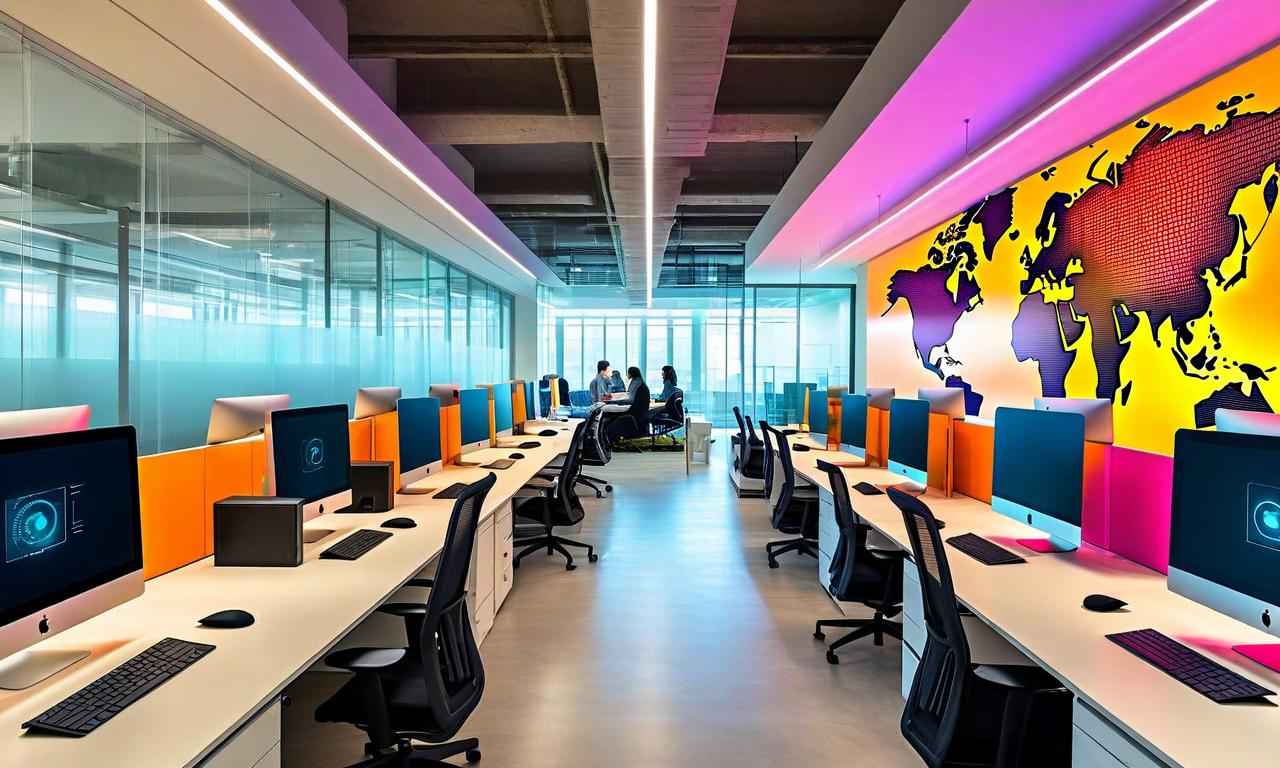AI Industry Faces Bubble Concerns Amid Trillion-Dollar Spending Spree
The AI industry is experiencing unprecedented investment levels, with tech giants investing billions in infrastructure. OpenAI plans to spend $500 billion on 'Stargate' and potentially trillions on AI infrastructure, expecting to use $115 billion by 2029. Meta secured $26 billion for data centers. Bain & Co. predicts AI companies need $2 trillion annual revenue by 2030, with a projected $800 billion shortfall. Challenges include low returns on AI investments and issues with AI-generated content. The market is competitive, with Chinese alternatives pressuring prices. Despite concerns, ChatGPT has 700 million weekly users, and OpenAI forecasts $12.7 billion revenue in 2025. Industry leaders acknowledge bubble risks while remaining optimistic long-term.

*this image is generated using AI for illustrative purposes only.
The artificial intelligence (AI) industry is witnessing unprecedented levels of investment, with tech giants pouring hundreds of billions into AI infrastructure. However, this spending spree is raising concerns about a potential bubble, as returns on these massive investments remain uncertain.
Staggering Investments in AI
OpenAI, a leading player in the AI space, has announced an ambitious $500 billion 'Stargate' plan and projects spending trillions on AI infrastructure. The company is expected to burn through $115 billion in cash by 2029. Meanwhile, Meta has secured $26 billion in debt financing for data centers in Louisiana, underscoring the scale of investments being made in AI capabilities.
Financial Projections and Concerns
Bain & Co. has made a striking prediction about the AI industry's future:
| Metric | Value |
|---|---|
| Annual revenue needed by AI companies by 2030 | $2.00 trillion |
| Projected shortfall | $800.00 billion |
This projection highlights the enormous expectations placed on the AI sector and the potential gap between investment and returns.
Challenges in Realizing AI's Potential
Despite the massive influx of capital, the AI industry faces significant challenges:
- MIT research found that 95% of organizations saw zero return on AI investments.
- Harvard and Stanford researchers identified 'workslop' - AI-generated content lacking substance - which is estimated to cost organizations millions in lost productivity.
- OpenAI's GPT-5 release received mixed reviews, with CEO Sam Altman acknowledging that they're "missing something quite important" for achieving Artificial General Intelligence (AGI).
Market Dynamics and Competition
The AI landscape is becoming increasingly competitive:
- Chinese competitors are offering low-cost alternatives, putting pressure on Silicon Valley pricing.
- Despite concerns, ChatGPT boasts 700 million weekly users.
- OpenAI forecasts its revenue to triple to $12.70 billion in 2025.
- The company has achieved a $500 billion valuation without ever turning a profit.
Industry Outlook
Industry leaders acknowledge bubble risks while maintaining long-term optimism. Comparisons are being drawn to the dot-com era's infrastructure buildout and eventual crash. This parallel suggests that while there may be short-term volatility, the long-term impact of AI could be transformative.
As the AI industry continues to evolve rapidly, investors and companies alike will need to navigate carefully between the immense potential of AI technologies and the risks associated with such massive, speculative investments.
























